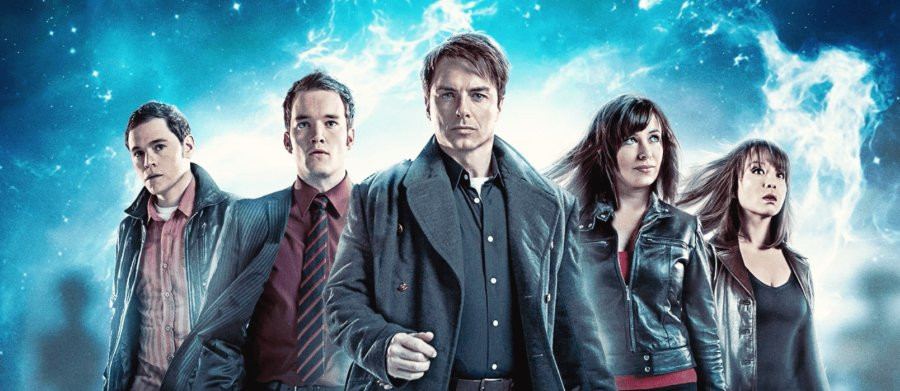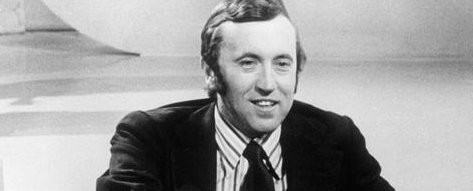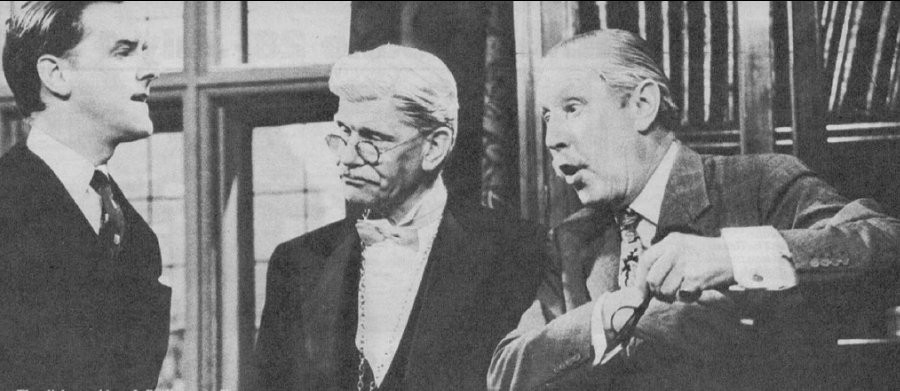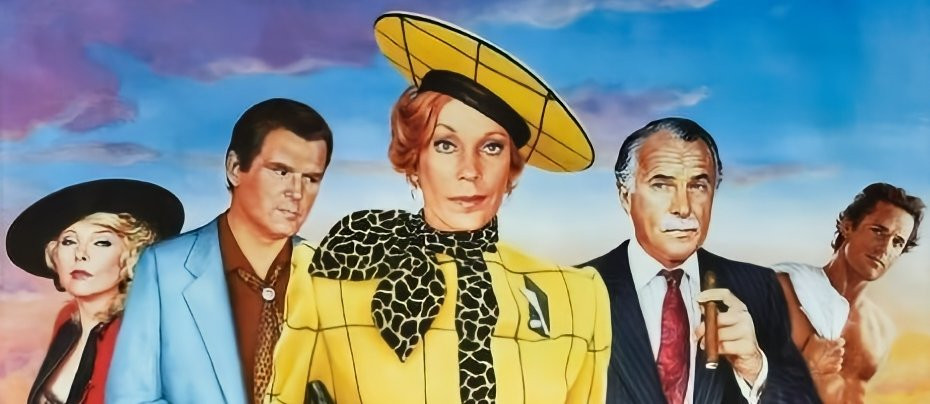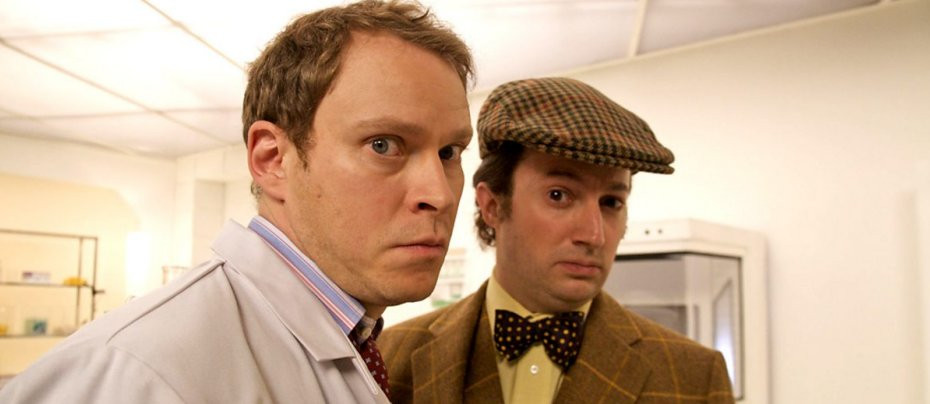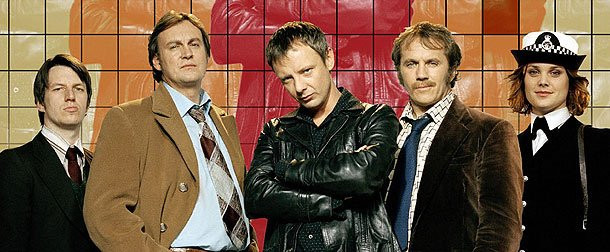
Star Stories
2006 - United KingdomReview: John Winterson Richards
From its very beginning, when it showed the Comic Strip's 'Five Go Mad in Dorset' on its opening night, Channel 4 has put commitment to cutting edge comedy at the heart of its unique selling proposition to the British public. It was where Brits went if they wanted something a bit different - not always that funny but different.
However, after a couple of decades, they were visibly running out of steam. There is only so much originality out there, especially when one sticks to a fairly unoriginal idea of originality. The 1990s and the turn of the Century will, in any case, hardly be remembered as another Golden Age of British Comedy. Most of the genuinely witty shows on British television for a very long time were either repeats or imports from America.
So, by 2006 there was a desperate need for some real fresh air in the room, and Star Stories blew in at precisely the right time. It abandoned the old "situation comedy" in favour of the spoof documentary or "mockumentary" style, adding an additional twist of its own: these were not normal documentaries but rather dramatised documentaries of the type that were then becoming more common.
The idea of a "mockumentary" based on a "fly on the wall" documentary has been well established since 'This Is Spinal Tap,' and had been given a new hunting ground with the coming of "reality television." The big difference with 'Star Stories' is that a dramatised documentary does not pretend to be a "fly on the wall." It is staged deliberately and makes no secret of the fact that it is staged.
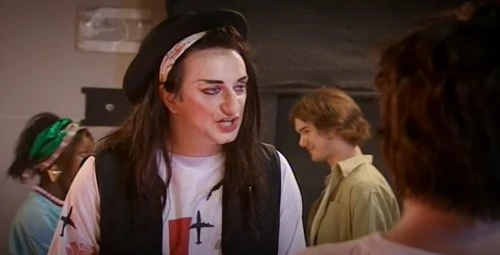
A whole new dimension is opened up. Instead of comedians posing as supposed real life characters, we have comedians posing as supposed serious dramatic actors posing as supposed real life characters. This gives a lot more comic possibilities as the comedians can satirise not only the supposed real life characters but also the supposed dramatic actors playing them - along with the differences, and similarities, between actor and role of which the actors themselves seem blissfully unaware.
When, as was the case with Star Stories, the subjects of the "mockumentaties" are "celebrities," there is another layer of satire, because the implication is that they have agreed to play themselves in dramatisations of their own life stories. So now we have comedians posing as supposed serious dramatic actors posing as their own perceptions of their real selves.
It this often huge gap between their perception of themselves and what we actually see of them that has the greatest comedic effect. Sometimes, it works the other way, and they seem to want to distance themselves from the characters they are presenting as themselves, only to show the truth that they are closer to what they are portraying than they realise.
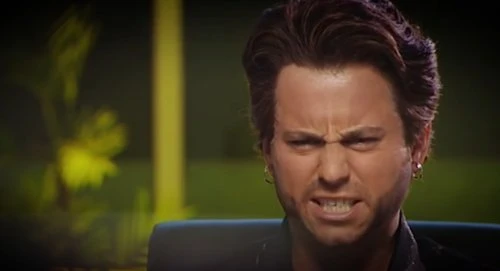
This is what distinguishes Star Stories from a more conventional "celebrity" based "mockumentary" like Stella Street, which pastiches the "fly on the wall" format. In 'Stella Street' the "celebrity" impersonations are the whole show, and very good they are too. In Star Stories, we are not offered impersonations but impersonations of impersonations as the "celebrities" try - and often fail - to impersonate themselves.
If the accuracy of the impersonations in Star Stories is, frankly, variable, that does not matter. The point is that they are meant to be slightly off.
After all, the dramatised documentaries it is satirising are themselves staged and so the genre is noted for a style of acting that tends to the stagy. The Star Stories cast have great fun with this, proving how it takes good actors to play bad actors. Of course, it is rather unfair to those of the "celebrities" who happen to be good actors in real life, but they are meant to be putting in bad performances because their perception of themselves is a blind spot.
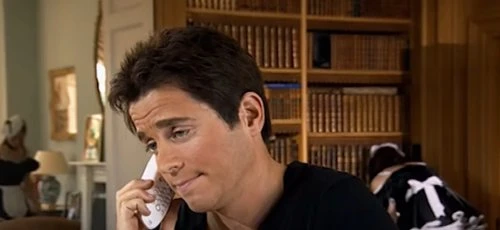
It is implied that the "celebrities" agreed to take part in these documentaries because they either controlled the production or it was controlled by people very sympathetic to them. So one on Simon Cowell is titled "SyCo Productions Presents 'Simon Cowell - My Honesty, My Genius,' " while one on Tom Cruise is "The Church of Scientology Presents 'Being Tom Cruise - How Scientology Isn't In Any Way Mental.' "
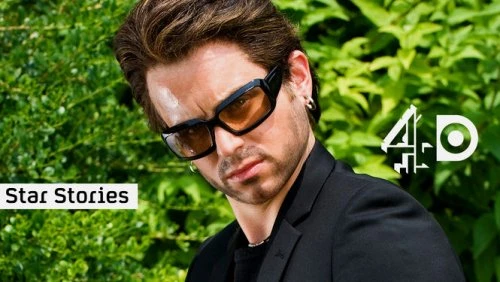
As a result, the episodes take a sycophantic tone towards their subjects, putting a positive spin, which is usually very contrived, on famous embarrassing incidents in their lives. Yet at times the relentlessly helpful tone of the cheery narrator is at odds with what we are being shown on screen. In "Peter Andre Presents 'Me and Katie - How the Honeymoon Never Ends, ' " the lovestruck Peter seems totally unaware of how Katie is being presented to the viewers.

It is an expert use of the "unreliable narrator," a literary technique of which we do not see enough on television .
Just in case we have not got the message, every episode begins with Max Steiner's soaring theme from 'Gone With the Wind' - making the point that what we are seeing is a highly selective and romanticised version of events.
The satire was well observed and the humour laced with a particularly British vulgarity, a nice blending of high brow and low comedy. The jokes came thick and fast - perhaps too fast. Blink and you might miss one. Some of the best were casual throwaways, especially the fake newspaper headlines.
A talented, somewhat eclectic cast of relative unknowns in multiple roles gave the whole project a likeable repertory air to it. The star was undoubtedly the energetic Kevin Bishop, who got most of the leading male roles - it is now impossible to see a Tom Cruise film without thinking of him - but the plum jam was spread fairly evenly over about half a dozen other principals.
The most recognisable is Harry Peacock of the Peacock acting dynasty - Shakespearean Trevor is his father and frequent Comic Strip collaborator Daniel his brother. Harry later went on to become Ray Purchase in Toast of London. His playing Kevin Federline as a sophisticated lounge lizard who only pretends to be a hick in order to seduce the innocent Britney Spears is one of the great highlights of Star Stories.

Naïve Britney - in the Star Stories version, ostensibly produced by the State of Louisiana - is played very sympathetically by Daisy Beaumont, who got most of the more memorable female roles. She went wonderfully over the top as Catherine Zeta-Jones, the subject of the episode that probably sums up the show better than any other, while she showed her versatility by playing Angelina Jolie as a villainess in an episode seen from the point of view of Jennifer Aniston, played by Laura Patch. In the same episode, Thaila Zucchi plays Courteney Cox as another villainess - apparently poor Jennifer seems surrounded by them - and gets one of the best lines in the series. Steve Edge excelled in making the glamorous look gormless.
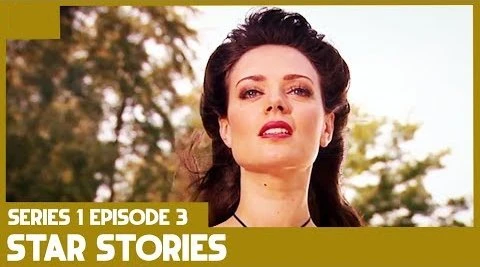
It is strange that, while most of them, and the other members of the cast, have worked steadily since Star Stories, none has really broken through and become the big household name several of them seemed on the verge of being at the time.
In spite - or perhaps because - of its cultural literacy, Star Stories made little impact on the masses. Nevertheless, the ratings were respectable and it seems that it was Channel 4 internal politics that killed it off. Various people wanted money for their own projects.
Most of these took the form of Comedy Showcase, three seasons of free standing comedy episodes, seventeen in all, no less than nine of which were spun off into short lived series of their own. One of these was The Kevin Bishop Show, possibly a small gesture of atonement for cancelling Star Stories to make way for it. A famously fast paced show - again, perhaps too fast - 'The Kevin Bishop Show' had a lot of very good ideas, but its speed gave it a huge appetite for material and it was soon recycling very obviously.
A Comedy Connections episode dedicated to Star Stories would therefore have been rather short and sad. It was an orphan that lasted very three brief seasons, fifteen episodes in all, with only a single short-lived descendant, 'The Kevin Bishop Show.'
Both Star Stories and its cast deserved a lot more, and it is not easy to explain why they never got it. These things often just come down to timing. It was certainly one of the best British comedies of the first decade of the 21st Century, but that is no great compliment, given the state of the competition at the time. Perhaps people were simply not very interested in British comedy generally at that point. It is still a show that can be rewatched with a great deal of enjoyment. Indeed, there is additional enjoyment in comparing the public images of certain "celebrities" then and now, even if that is rather melancholy in a couple of cases. There is also more scope than ever for a revival, given the number of "celebrities" in real need of satirising.
Seen this show? How do you rate it?
Seen this show? How do you rate it?
Published on July 3rd, 2020. Written by John Winterson Richards for Television Heaven.



